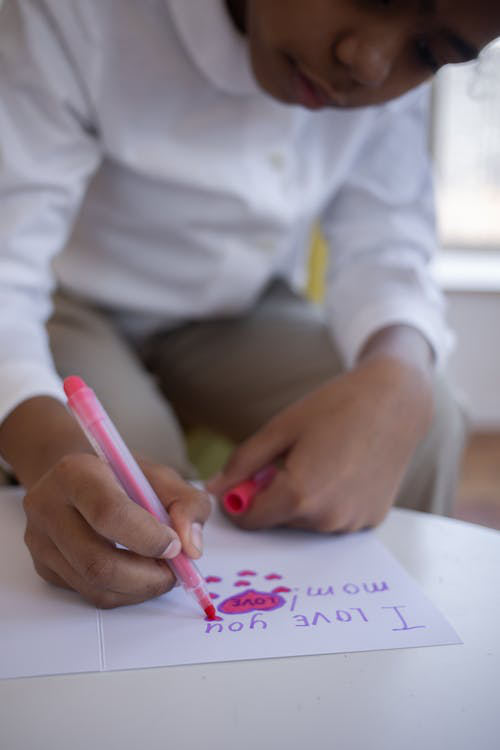In the journey of parenting, fostering emotional intelligence in children is a cornerstone for their future well-being. Emotional intelligence, the ability to recognize, understand, and manage emotions, plays a crucial role in building resilience, empathy, and positive relationships.
Via online parenting classes and forums from ParentingQuestions.org, you can learn practical tips on how to nurture emotional intelligence in your child.
Understanding Emotional Intelligence:
1. Building Blocks of Emotional Intelligence:
Emotional intelligence comprises self-awareness, self-regulation, empathy, and effective interpersonal skills. Recognizing these building blocks helps parents lay a strong foundation for their children’s emotional well-being.
2. Long-Term Impact:
Cultivating emotional intelligence in childhood has lasting effects, influencing academic success, mental health, and the ability to navigate social challenges. Mindful parenting contributes to a child’s emotional toolbox, empowering them for a lifetime.
Emotional intelligence cultivated in childhood lays the groundwork for a resilient and well-adjusted adulthood. Those with a strong emotional quotient (EQ) navigate relationships with empathy, handle stress effectively, and exhibit superior interpersonal skills.
Investing in emotional intelligence during childhood yields a lifetime of emotional well-being and success in various facets of life.
Actionable Tips For Mindful Parents For Nurturing Emotional Intelligence In Children:
Here are fourteen practical tips that will help you nurture emotional intelligence in children;
1. Lead by Example:
Children learn by observing. Demonstrate emotional intelligence by expressing your own feelings and modeling healthy coping mechanisms. When parents prioritize their emotional well-being, children are more likely to follow suit.
2. Create a Safe Space for Expression:
Encourage open communication by creating a safe and non-judgmental space for children to express their emotions. Validate their feelings, whether positive or negative and let them know it’s okay to experience a range of emotions.

3. Teach Emotional Vocabulary:
Help children develop a nuanced emotional vocabulary. Discuss and label emotions, fostering their ability to articulate how they feel. This enhances self-awareness and enables effective communication.
4. Practice Mindful Listening:
Mindful listening is a cornerstone of fostering empathy. When your child shares their feelings, practice active and attentive listening. This not only strengthens your connection but also teaches them the value of being heard.
5. Introduce Mindfulness Exercises:
Incorporate simple mindfulness exercises into your daily routine. Activities such as deep breathing, guided imagery, or short moments of reflection help children develop self-regulation skills and enhance their emotional resilience.

6. Encourage Problem-Solving:
Guide children in problem-solving rather than immediately providing solutions. This empowers them to think critically, consider others’ perspectives, and develop effective interpersonal skills.
7. Set Healthy Boundaries:
Establishing clear and healthy boundaries contributes to emotional intelligence. Children learn about respect, responsibility, and empathy when boundaries are communicated and enforced in a loving and consistent manner.
8. Celebrate Successes and Failures:
Teach children that both successes and failures are part of life. Celebrate achievements, no matter how small, and use setbacks as opportunities for learning and growth. This mindset cultivates resilience and a positive attitude towards challenges.
9. Encourage Emotional Expression Through Art:
Integrate art activities into your child’s routine. Drawing, painting, or crafting can serve as powerful outlets for emotional expression. Encourage them to depict their feelings through art, providing an alternative means of communication.
10. Foster Gratitude Practices:
Cultivate a sense of gratitude within your family. Regularly express appreciation for the positive aspects of life, both big and small. Gratitude practices contribute to a positive emotional mindset and reinforce the importance of acknowledging positive emotions.

11. Navigate Conflict Constructively:
Teach children constructive ways to handle conflicts. Model conflict resolution by discussing disagreements calmly and finding solutions together. This equips children with the skills to manage interpersonal challenges and fosters emotional intelligence in social settings.
12. Implement Daily Reflection:
Introduce a daily reflection practice where you and your child share one positive and challenging aspect of the day. Reflecting on experiences fosters self-awareness and provides opportunities for discussion, guidance, and emotional processing.
13. Create an Emotion Chart:
Develop an emotion chart with various facial expressions representing different emotions. Encourage your child to point to or discuss the emotion they are feeling at any given moment, facilitating emotional identification and expression.
14. Engage in Cooperative Play:
Encourage cooperative play where children engage in activities that require teamwork. Whether it’s building a puzzle, playing a board game, or collaborating on a creative project, cooperative play enhances interpersonal skills, communication, and emotional regulation.
Learn Practical Tips For Developing Emotional Intelligence In Children Via ParentingQuestions.org
ParentingQuestions.org provides online parenting classes to guide you on how to foster emotional intelligence in your children. You can also get help from their online parenting community and advice forums.
Contact them for any inquiries.
Author’s Bio:
Emma T., a dedicated parenting expert, blends her passion for mindfulness with a wealth of experience in nurturing emotional intelligence. As a mother of two, she shares actionable insights and heartfelt advice on fostering resilient, emotionally intelligent children.

